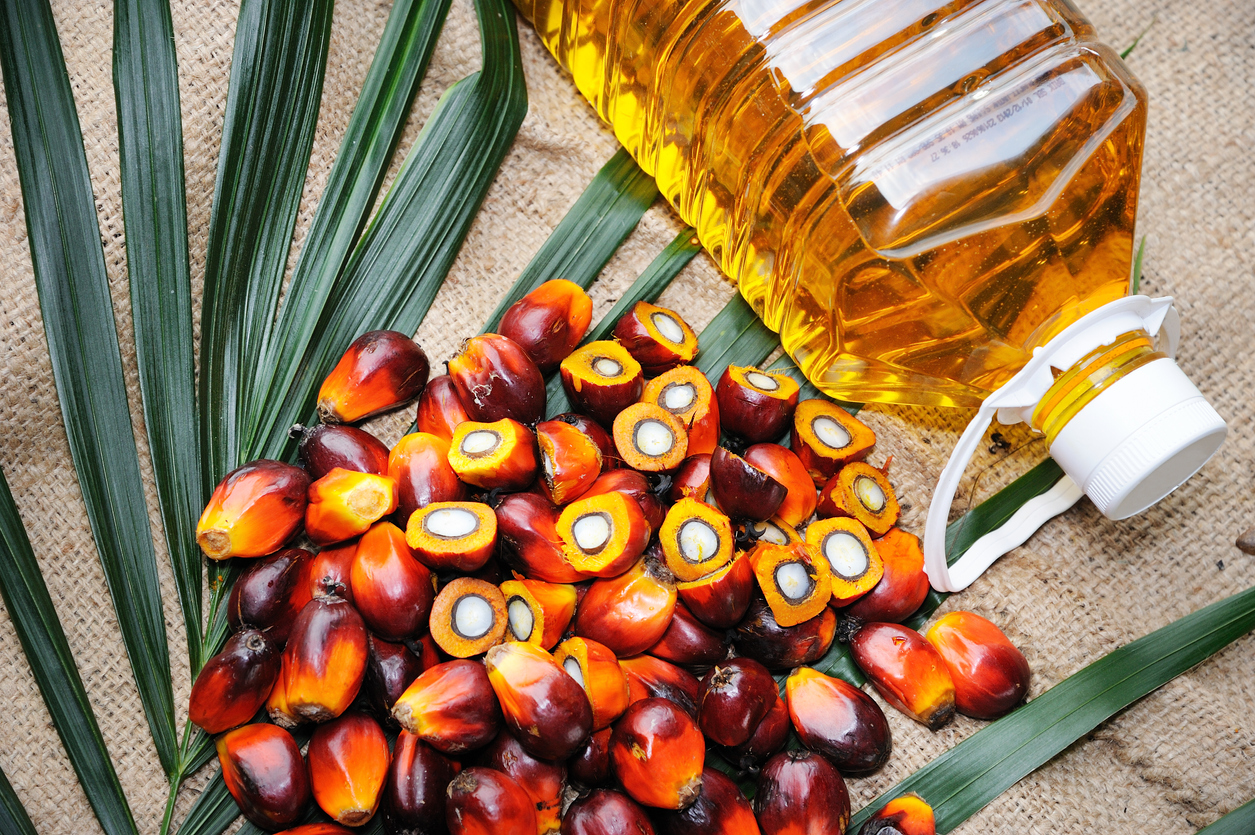The Golden Harvest: Exploring the Lucrative Palm Oil Market in Nigeria
The Golden Harvest: Exploring the Lucrative Palm Oil Market in Nigeria
Welcome to the world of palm oil, where lush green plantations stretch as far as the eye can see and golden fruits hang in abundance, promising a bountiful harvest. Nigeria, known for its rich agricultural heritage, has emerged as one of the key players in this lucrative market. Join us on a journey through time and terrain as we explore the fascinating realm of palm oil production in Nigeria – from humble beginnings to soaring profits. Discover how this liquid gold has transformed lives, landscapes, and economies alike, making Nigeria an undeniable force to be reckoned with in the global palm oil industry. Get ready to unearth secrets of success and learn why investing in this golden harvest could be your ticket to financial prosperity.
Introduction to Palm Oil and its significance in Nigeria’s economy
Introduction to Palm Oil and its Significance in Nigeria’s Economy
Palm oil has been an integral part of Nigeria’s economy for centuries, with the country being one of the world’s largest producers and exporters of this golden commodity. It is not only a vital ingredient in traditional Nigerian cuisine but also plays a significant role in the country’s economic growth and development.
Originating from West Africa, palm oil is derived from the fruit of the oil palm tree. In Nigeria, it is primarily produced in the southern states such as Cross River, Akwa Ibom, Ondo, Edo, Delta, Rivers, and Bayelsa. The production of palm oil involves harvesting ripe palm fruits from large plantations or small-scale family farms and extracting their oil through pressing or boiling processes.
Significance in Nigeria’s Economy
Palm oil is considered as “liquid gold” due to its numerous uses and high demand both locally and internationally. In fact, it accounts for almost 40% of the world’s vegetable oil consumption. Its significance in Nigeria’s economy can be seen through various aspects:
1. Employment Opportunities: The palm oil industry provides employment opportunities to millions of Nigerians directly or indirectly involved in its production, processing, distribution, and exportation. This includes farmers who cultivate the plantations, factory workers who process the fruits into crude palm oil (CPO), traders who buy and sell the product, and logistics personnel involved in transportation.
History of the Palm Oil industry in Nigeria
The history of the palm oil industry in Nigeria is a long and complex one, dating back centuries to when palm oil was first introduced to the region. The oil extracted from the fruit of the African oil palm tree has been used for various purposes throughout Nigerian history, making it an integral part of the country’s economy.
Palm oil production in Nigeria can be traced back to ancient civilizations such as the Benin Empire and the Kingdom of Nri, where it was primarily used for cooking and medicinal purposes. However, it wasn’t until the 19th century that palm oil became a major commercial commodity with high demand from European countries.
During this time, British colonizers recognized the potential value of palm oil and began investing heavily in its production. They established large plantations along the coastlines of present-day Nigeria, using forced labor from local communities to cultivate and harvest vast quantities of palm fruits.
The colonial era saw a significant increase in palm oil exports from Nigeria, making it one of the world’s leading producers at that time. As demand continued to grow globally, more land was cleared for plantations, leading to deforestation and displacement of indigenous communities.
After gaining independence in 1960, Nigeria took control of its palm oil industry. The government introduced policies aimed at promoting local production and processing rather than just exporting raw materials. This move led to increased employment opportunities and a boost in rural development as small-scale farmers were encouraged to cultivate their own palms.
Understanding the process of producing Palm Oil
The production of palm oil is a complex process that involves several stages, each playing a crucial role in the final product. In this section, we will take a closer look at each step involved in the production of palm oil.
1. Planting and Harvesting:
The first stage in producing palm oil is planting the oil palm trees. These trees require a warm and humid climate to thrive, making countries like Nigeria an ideal location for cultivation. Once planted, it takes about three to four years for the palm trees to reach maturity and start producing fruits. The ripe fruits are harvested by hand or with the help of mechanical tools.
2. Fruit Sterilization:
After harvesting, the fruits are transported to a processing plant where they undergo sterilization. This is done by heating them in large steamers to kill any bacteria or fungi present on the surface of the fruit.
3. Fruit Threshing:
Once sterilized, the fruits are stripped from their bunches using machines called threshers. This process separates the fruits from their outer covering, known as bunches.
4. Digestion:
Next, the separated fruits are mashed and mixed with hot water before being fed into digesters – large tanks where they are heated at high temperatures for about 90 minutes. The heat helps break down the fruit’s flesh into pulp and releases its oils.
The current state of the Palm Oil market in Nigeria
The palm oil market in Nigeria is currently experiencing significant growth and development, with the country ranked as the fourth largest producer of palm oil globally. This boom is largely due to the increasing demand for palm oil both domestically and internationally, making it a highly lucrative industry for farmers, investors and traders.
One of the main factors driving the growth of the Nigerian palm oil market is its versatility and wide range of uses. Palm oil is not just used for cooking but also has various industrial applications such as biofuel production, cosmetics, soap making, and animal feed. As a result, there is a high demand for palm oil both within Nigeria and in other countries around the world.
In recent years, there has been a shift towards sustainable production practices in the global market, with consumers becoming more conscious about the environmental impact of their purchases. This trend has created opportunities for Nigerian producers who are able to meet these sustainability standards through certifications such as Roundtable on Sustainable Palm Oil (RSPO) or Rainforest Alliance certification.
Despite its potential for growth and profitability, the Nigerian palm oil market faces several challenges that hinder its full potential. One major challenge is low productivity due to outdated farming techniques and inadequate investment in research and development. This results in lower yields compared to other major producers like Indonesia and Malaysia.
Additionally, there have been concerns regarding land conflicts between small-scale farmers who depend on traditional methods of cultivation versus large-scale commercial plantations seeking to expand their operations.
Role of Wigmore Trading as a major exporter and supplier of Palm Oil in Nigeria and Africa
The palm oil market in Nigeria has been booming over the years, with the country being one of the top producers and exporters of this valuable commodity. In fact, Nigeria is currently ranked as the 5th largest producer of palm oil in the world, accounting for about 7% of global production. Within Africa, it holds an even more impressive position as the leading producer and exporter of palm oil.
Among the key players in this industry is Wigmore Trading – a major exporter and supplier of palm oil not just in Nigeria but across Africa. With over two decades of experience in the business, Wigmore Trading has established itself as a trusted source for high-quality palm oil products.
So what exactly is their role in this lucrative market? Let’s take a closer look.
1. Reliable Supply Chain Management
One of Wigmore Trading’s key roles as a major exporter and supplier is to ensure a steady supply chain for their customers. This involves working closely with farmers and local producers to ensure consistent production levels throughout the year. They also have partnerships with various processing plants to guarantee efficient processing and packaging of palm oil products.
2. Quality Control & Assurance
Wigmore Trading takes great pride in delivering only top-quality products to their customers. As such, they have strict quality control measures in place at every stage – from sourcing raw materials to packaging and transportation. Every batch undergoes thorough testing to meet international standards before it is exported or supplied locally within Nigeria.
Benefits and uses of Palm Oil in different industries
Palm oil is a versatile and highly valuable commodity that has been used for centuries in various industries. Its unique properties make it an essential ingredient in many products, making it a highly sought-after commodity on the global market. In this section, we will explore the benefits and uses of palm oil in different industries, highlighting its significance in today’s market.
1. Food Industry:
One of the most significant uses of palm oil is in the food industry. It is widely used as a cooking oil due to its high smoke point, which means it can be heated to high temperatures without breaking down or producing harmful compounds. This makes it ideal for deep-frying, stir-frying, and other cooking methods that require high heat.
Palm oil is also commonly used as an ingredient in many food products such as margarine, spreads, baked goods, and snacks. Its rich texture and mild flavor make it a popular choice among manufacturers looking to add richness and stability to their products.
2. Personal Care Products:
Palm oil’s moisturizing properties make it an excellent ingredient for personal care products such as soaps, lotions, shampoos, and cosmetics. Its high content of vitamin E makes it beneficial for improving skin health by acting as an antioxidant and protecting against free radical damage.
Additionally, palm oil has a long shelf life compared to other plant-based oils like coconut or olive oil. This makes it an ideal choice for manufacturers looking to increase the longevity of their products.
Challenges faced by the Nigerian Palm Oil industry
The Nigerian palm oil industry has been a major contributor to the country’s economy for many years, with Nigeria ranking as the world’s fifth-largest producer of palm oil. However, despite its potential for growth and profitability, the industry is facing various challenges that are hindering its progress. In this section, we will explore some of the main challenges faced by the Nigerian palm oil industry.
1. Poor Infrastructure: One of the biggest challenges facing the palm oil industry in Nigeria is inadequate infrastructure. The poor state of roads, ports, and transportation systems makes it difficult for farmers to transport their produce to processing plants or export markets efficiently. This leads to high transportation costs and delays in getting products to consumers, ultimately affecting profitability.
2. Lack of Modern Technology: Another significant challenge is the lack of modern technology in palm oil production. Many farmers still rely on traditional methods such as manual harvesting and processing techniques, which are labor-intensive and time-consuming. The use of outdated technology also affects the quality and quantity of palm oil produced, leading to low yields and reduced competitiveness in global markets.
3. Land Issues: Land ownership disputes have also been a major challenge for the Nigerian palm oil industry. With increasing population growth and urbanization, prime agricultural land is being converted into residential or commercial areas. This reduces available land for cultivation, making it more challenging for small-scale farmers to expand their operations.
4. Pests and Diseases: The spread of pests and diseases is another significant threat to Nigeria’s palm oil industry.
Opportunities for growth and investment in the Palm Oil market
The Palm Oil market has been a significant contributor to Nigeria’s economy, with the country currently ranking as the world’s fifth-largest producer of this highly sought-after commodity. With its abundance of land and favorable climatic conditions, Nigeria has immense potential for growth and investment in the Palm Oil industry.
Here are some key opportunities that investors should consider when looking to tap into the lucrative Palm Oil market in Nigeria:
1. Increasing global demand: The global demand for Palm Oil is continuously on the rise due to its versatile use in various industries such as food, cosmetics, and biofuel production. As more countries shift towards sustainable alternatives for fossil fuels, there is an increasing demand for biofuels made from palm oil. This trend presents a significant opportunity for growth and investment in the Nigerian Palm Oil market.
2. Favorable government policies: The Nigerian government has recognized the importance of developing its agricultural sector, including palm oil production. In recent years, various policies have been implemented to attract investors and promote local production. For instance, the Central Bank of Nigeria introduced a loan program specifically targeted at small-scale palm oil producers to boost their productivity and expand their operations.
3. Large untapped potential: Despite being one of the largest producers of Palm Oil globally, Nigeria still has vast undeveloped land suitable for cultivating oil palm trees. According to estimates by industry experts, only about 1.5 million hectares out of a potential 4 million hectares are currently utilized for commercial palm oil production in Nigeria.
Sustainable
Sustainable production and consumption have become increasingly important in today’s world, as we face the challenges of climate change and environmental degradation. In the palm oil industry, sustainability is not only crucial for protecting the environment but also for ensuring a long-term viable market.
In recent years, there has been a growing global demand for sustainable palm oil due to increasing concerns about deforestation and human rights violations in the traditional palm oil producing regions. This has led to major players in the industry, such as Unilever and Nestle, committing to 100% sustainable palm oil sourcing by 2020.
In Nigeria, sustainable practices are also gaining traction in the palm oil sector. The country is currently one of the largest producers of crude palm oil (CPO) in Africa and holds great potential for growth. However, unsustainable methods of cultivation have resulted in significant environmental damage, including deforestation and biodiversity loss.
To address these issues, initiatives such as Roundtable on Sustainable Palm Oil (RSPO) certification have been introduced in Nigeria. RSPO is an international organization that promotes responsible palm oil production through a set of standards that cover social responsibility, environmental protection, and economic viability.
Smallholder farmers make up the majority of CPO producers in Nigeria. To ensure their inclusion in sustainable practices, organizations like Solidaridad are working closely with them to provide training on good agricultural practices that improve productivity while minimizing harm to the environment.








Comments are closed.